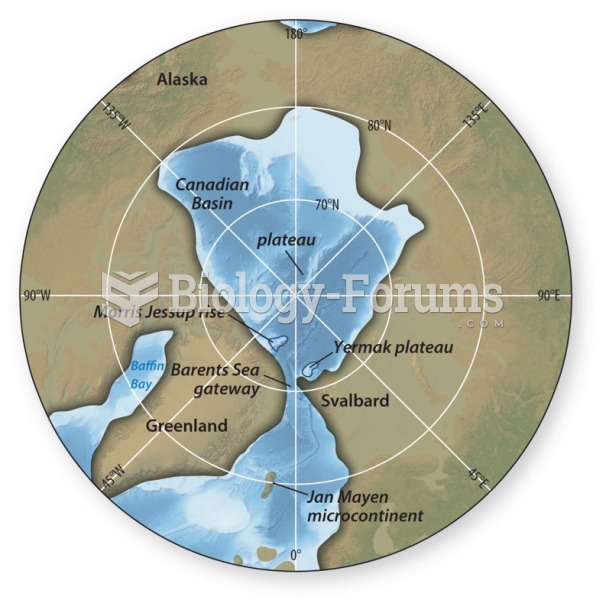|
|
|
Throughout history, plants containing cardiac steroids have been used as heart drugs and as poisons (e.g., in arrows used in combat), emetics, and diuretics.
It is difficult to obtain enough calcium without consuming milk or other dairy foods.
In the United States, an estimated 50 million unnecessary antibiotics are prescribed for viral respiratory infections.
The calories found in one piece of cherry cheesecake could light a 60-watt light bulb for 1.5 hours.
Your skin wrinkles if you stay in the bathtub a long time because the outermost layer of skin (which consists of dead keratin) swells when it absorbs water. It is tightly attached to the skin below it, so it compensates for the increased area by wrinkling. This happens to the hands and feet because they have the thickest layer of dead keratin cells.






